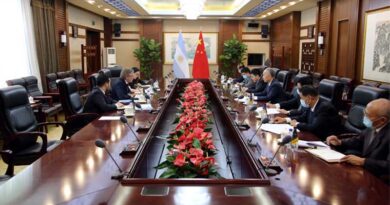Bolivia starts exporting power to Argentina
16 March 2023, Argentina: Bolivia began exporting electricity to neighboring Argentina on 14 March as drought and record heat continued in the southern part of the hemisphere.
The 132kV power line stretches 120km from Bolivia’s Tarija southern department and Argentina’s northern Salta province. The power line was built by Bolivia’s state-owned power company, ENDE.
Inauguration of the transmission line, which is part of Bolivia’s long-term plan to export power, comes as Argentina and nearby countries struggle with power supply amid scorching weather.
Temperatures in Argentina from November-January were the hottest since 1961, the national weather service has said. The drought began in 2019 and intensified in 2022. Argentina received its lowest rainfall in four decades in the final quarter of 2022.
The drought is hurting crops, including those for biofuel. Argentina’s agribusiness association, Crea, estimated in early March that the soybean harvest would be 31.2mn metric tonnes (t), down from its original estimate of 50mn t. Corn output is now forecast at 38.6mn t, down from 55.2mn t.
The collapse of agriculture production will add to Argentina’s tough economic conditions, including inflation, which was 6.6pc in February and 102.5pc annualized through the month.
Neighboring Uruguay is dealing with similar drought conditions, which forced it to import electricity from Brazil as its hydroelectric supply has dropped. Hydroelectric power accounted for 43pc of average supply in 2022, dropping to 26pc so far this year.
The largest hydroelectric plant, the 1,890MW Salto Grande complex it shares with Argentina, provided an average of 98GWh in the first two months of this year, slightly more than 10pc of what it provided during the same two months of 2022.
Silvia Emaldi, president of Uruguay’s state-run power company, UTE, told Argus that the country opted to import power rather than rely on thermal generation.
“We want to avoid firing up thermal generating plants to save on the cost of using fuel oil,” she said.
Bolivian authorities hope that the first transmission line with Argentina will be the start of an interconnected system including Brazil, Paraguay and Uruguay.
Bolivia has installed capacity to generate 3,600MW, with national demand currently at 1,650MW, according to the energy ministry.
Bolivia also exports natural gas through pipelines to Argentina and Brazil, with an average of 17mn m³/d to Brazil and 10.8mn m³/d to Argentina last year.
Also Read: Tendovo soybean herbicide from Syngenta earns rave reviews during first season of use
(For Latest Agriculture News & Updates, follow Krishak Jagat on Google News)















